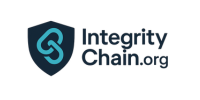Should Private Companies Pay Whistleblower Rewards? A Case for Ethical Incentives in Business

In 2012, Bradley Birkenfeld, a former UBS banker, received $104 million from the U.S. Internal Revenue Service for exposing one of the largest tax fraud schemes in history. His reward, while staggering, wasn’t from his employer—it came from a government-run whistleblower reward program. But what if companies themselves paid these rewards? What if, instead of fearing internal disclosures, businesses welcomed and incentivized them?
The idea that private companies should pay rewards to whistleblowers is a controversial one. To some, it’s a competent and ethical incentive—a way to surface misconduct early, protect stakeholders, and mitigate long-term risks. To others, it opens the door to opportunism, false claims, and a “snitch culture.”
This editorial examines the case for and against private-sector whistleblower rewards, drawing on real-world case studies, legal trends, behavioral economics, and corporate governance insights to explore whether this shift could foster better business ethics or undermine them.
I. The Traditional View: Silence is Loyalty
Historically, companies have expected employees to:
- Stay silent about wrongdoing
- Report internally, if at all
- Remain loyal even when the system is flawed
Whistleblowers have often faced retaliation, dismissal, blacklisting, and legal threats. Some high-profile examples:
- Sherron Watkins (Enron): Warned of accounting fraud but was ignored.
- Tyler Shultz (Theranos): Suffered immense pressure and legal harassment for speaking out.
- Susan Fowler (Uber): Revealed systemic harassment, leading to a public reckoning—but at career cost.
These cases suggest that internal loyalty without incentive often results in personal sacrifice and organizational damage. So why not flip the model?
II. The Government Model: Rewards That Work
In the U.S., the SEC Whistleblower Program and the False Claims Act (qui tam provision) have rewarded whistleblowers with 10–30% of financial recoveries from companies they exposed.
The results?
- Over $2 billion paid to whistleblowers by the SEC alone since 2011.
- Billions more recovered in False Claims Act prosecutions.
- Strong incentive for early disclosure and evidence-backed reports.
But these rewards come from government proceeds, not company treasuries.
III. Should Companies Pay Their Whistleblowers?
Let’s break down the arguments.
The Case For:
1. Early Detection Saves Millions
- The Association of Certified Fraud Examiners (ACFE) found that whistleblower tips are more effective at detecting fraud than audits or compliance checks.
- Encouraging reporting can reduce regulatory fines, legal liabilities, and reputational damage.
2. Builds a Culture of Trust
- Employees who feel heard and valued are more likely to report issues early, both internally and externally.
- Rewards signal that the company takes ethics seriously, not just compliance.
3. Ethical Reciprocity
- If a whistleblower saves the company from a $100 million lawsuit, why shouldn’t they receive $1 million?
4. Reduces External Reporting
- Employees are more likely to report internally (where issues can be resolved quietly) if they know there’s a reward for doing so.
5. Legal Shielding
- Courts may view incentivized internal reporting as evidence of a good-faith governance framework in future litigation.
The Case Against:
1. Risk of False or Opportunistic Claims
- Financial incentives might encourage malicious or exaggerated accusations.
- Legal frameworks would need safeguards to verify intent and facts.
2. Cost & Precedent Concerns
- Boards may resist setting reward precedents that lead to large payouts or incentivize constant reporting.
3. Undermines Team Morale
- Some argue that paying individuals for truth-telling can erode teamwork and trust, especially in cultures that value group harmony.
4. Blurs Legal Boundaries
- Companies may end up compensating employees who expose crimes that should go to regulators anyway.
5. Not Universally Applicable
- Small and medium-sized enterprises (SMEs) may lack the resources to implement or sustain such programs.
IV. Real-World Examples & Experiments
Google’s Internal Integrity Awards
- Google once offered discretionary internal bonuses to employees who reported serious compliance breaches.
- These were rarely publicized but signaled appreciation for ethical courage.
Siemens Post-Scandal Reforms
- Following its massive bribery scandal in the mid-2000s, Siemens overhauled its compliance and ethics systems, including the implementation of non-monetary recognition programs for whistleblowers.
Salesforce & SAP
- Have explored performance bonuses tied to internal risk prevention, including contributions to ethics.
Still, no major global company yet offers a formal, public whistleblower reward structure—a sign of the model’s untested nature.
V. Designing Ethical Whistleblower Reward Systems
If private companies were to implement such programs, how could they do it responsibly?
Eligibility Criteria
- Reports must involve material harm, policy violation, or criminal activity.
- Whistleblowers must follow a formal process (e.g., in good faith, via approved channels).
Verification Mechanism
- Independent internal committee or ethics board to review claims and measure impact.
Reward Tiers
- Fixed bonuses (e.g., $5K–$50K) or percentage-based awards (up to 5% of prevented loss).
Non-Monetary Recognition
- Career advancement, internal awards, or public praise (with consent) to reduce dependency on cash alone.
Confidentiality & Protection
- Secure, anonymous reporting systems with clear anti-retaliation protocols.
VI. Philosophical Perspective: Are We Paying for Integrity?
One ethical concern is whether rewarding whistleblowers commodifies integrity.
Opponents argue:
“Truth should be told because it’s right, not because it pays.”
Supporters counter:
In risky environments, courage requires more than conscience—it requires support.
As philosopher Michael Sandel notes in his work on markets and morality, incentives don’t always corrupt motives. They can sometimes enable moral behavior that would otherwise be unsafe.
VII. Conclusion: Rethinking Loyalty and Incentive
Whether or not companies decide to pay whistleblower rewards, the debate forces a more profound reckoning: Is your organization loyal to the truth, or just to its image?
In a world where compliance is often weaponized to silence dissent, rewarding ethical transparency may not just be a moral act—it may be a strategic advantage.
Corporate leaders must choose: will they fear whistleblowers, or empower them?


